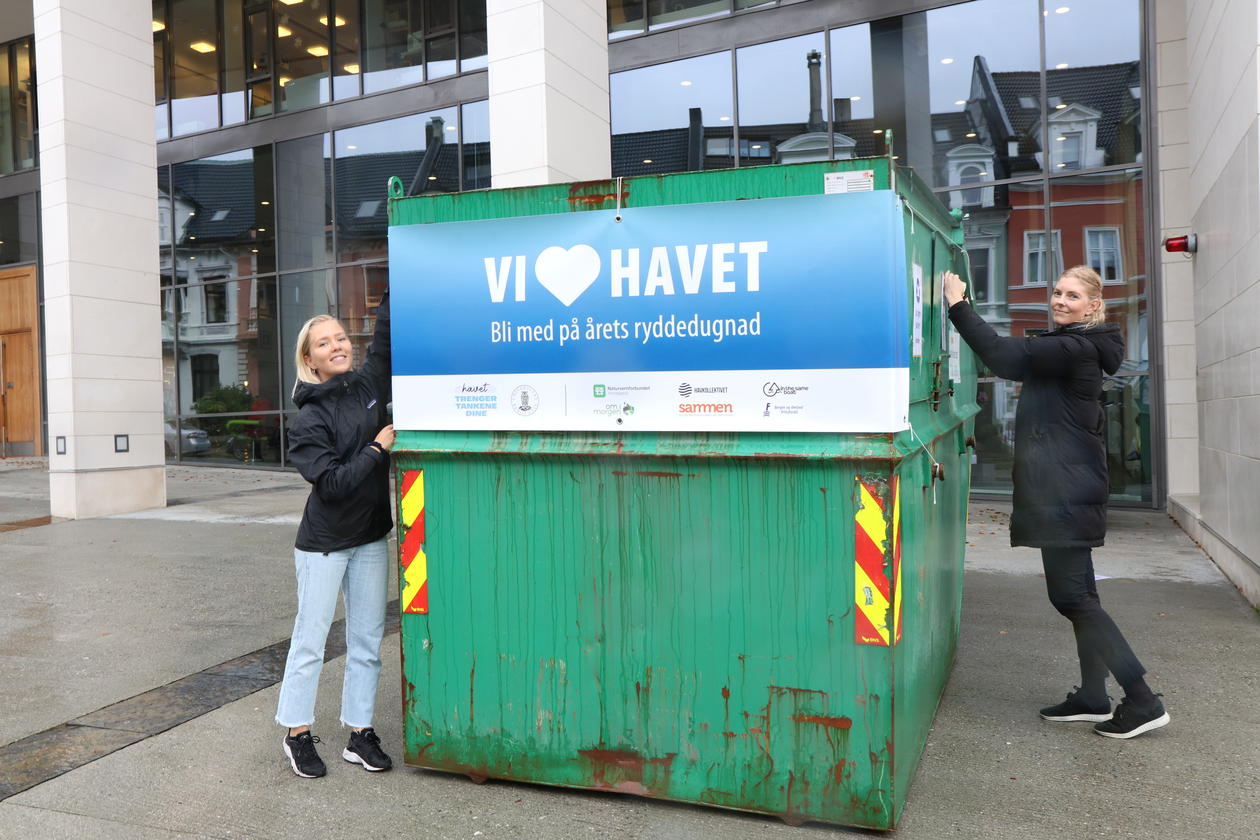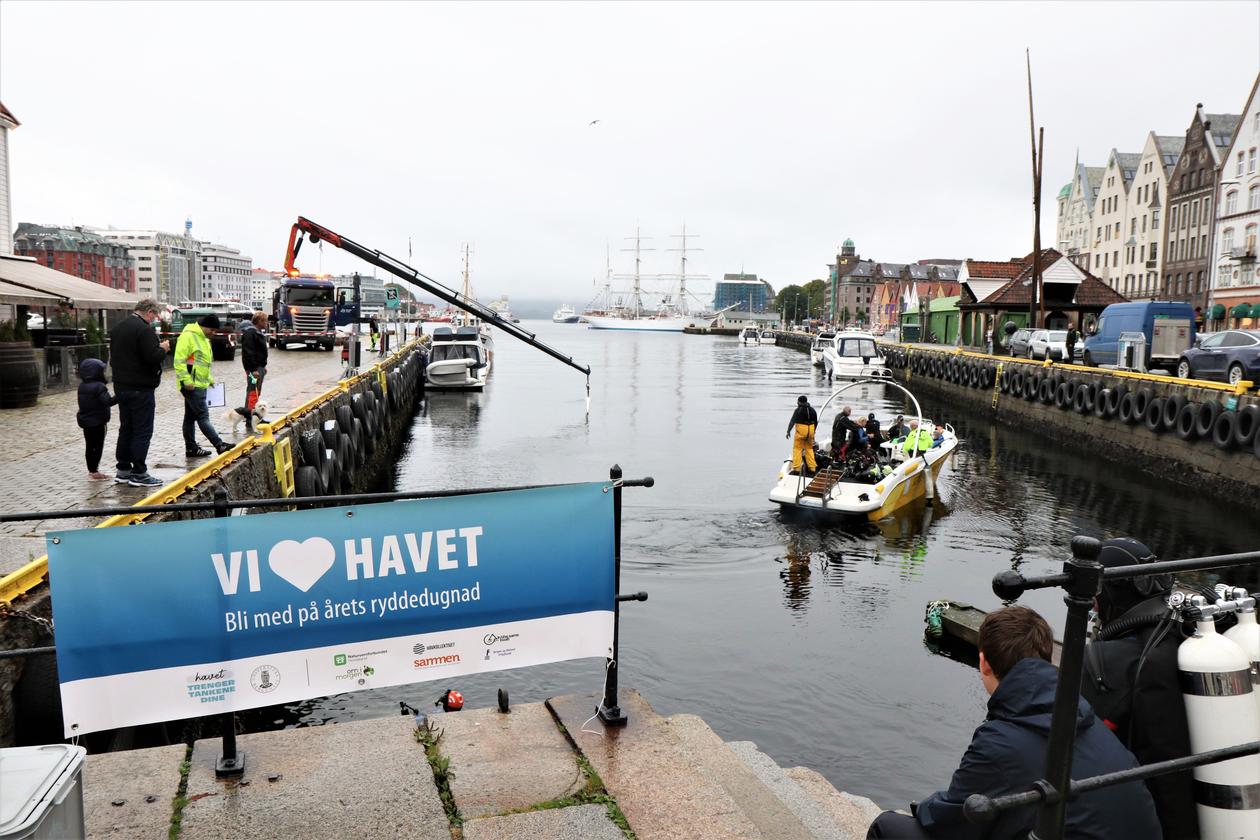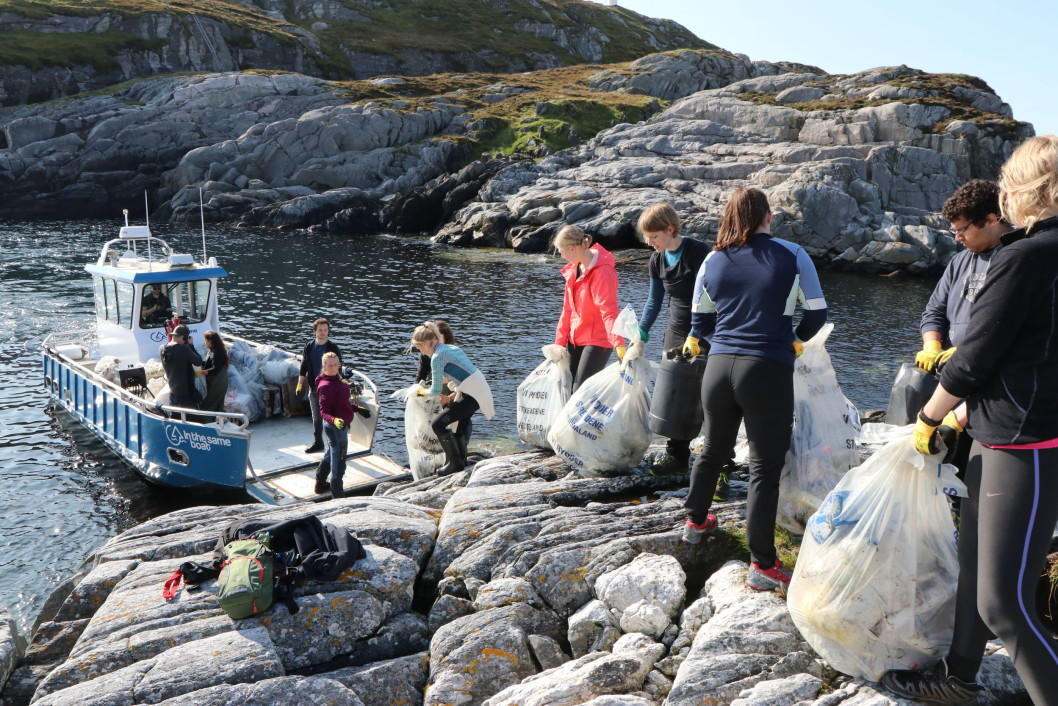UiB clears four tonnes of plastic
The University of Bergen and its partners collected four tonnes of plastic waste during this year’s plastic clearing drive. By comparison, 1.5 kg of plastic were found in the stomach of the Plastic Whale.
Plastdugnad ved UiB
Main content
It is easy to feel discouraged when you realise the magnitude of the plastic problem. But every little counts. Researchers from the University of Bergen found 1.5 kg of plastic in the stomach of the “Plastic Whale” that washed up off the coast of the island of Sotra in 2017. That’s all it takes to kill a whale.
“This means that removing even a relatively small amount of plastic from the sea can make a big difference to marine life,” says Helene Wiken, environmental coordinator at the University of Bergen, and Mari Froastad, a student and sustainability pilot, who have been at the forefront of the University of Bergen’s plastics project this autumn.
“However, the best solution to the problem of plastic pollution is to try to reduce your own consumption and to prevent plastic from ending up in nature in the first place,” they add.
This year’s anti-plastic drive
The plastic problem has received a lot of attention after a sick whale had to be euthanised off the coast of Sotra in January 2017. It became known as the Plastic Whale, after University of Bergen researchers opened up its stomach and found that it was full of plastic, rendering it unable to absorb nutrients. The story quickly spread around the entire world and sparked a massive anti-plastic movement.
This autumn, the University of Bergen initiated a large-scale voluntary drive to tackle this issue. Through a number of events in September, the University of Bergen and its partners cleared around four tonnes of plastic and other marine waste from the coast, the cityscape – and below the surface of the sea. Actions included:
- A major clean-up operation on Hellesøy on the 2020 Beach Cleaning Day, where 1.2 tonnes of plastic were collected in just a couple of hours.
- In collaboration with Bergen Diving Club and the Port of Bergen, the University of Bergen’s students underwater club SUB-BSI removed 1.5 tonnes of plastic and other marine waste from the Vågen harbour in central Bergen during an evening dive.
- The University of Bergen encouraged people to go out and collect stray plastic locally and placed a plastic container at the Student Centre, where some 600 kg of plastic was collected.
- Multiple smaller clean-up operations.
“The University’s students, staff, alumni and partners have demonstrated an impressive level of involvement and enthusiasm,” say Helene Wiken and Mari Froastad.
Eye-opening
Wiken and Froastad were shocked by what they saw during the clear-up operation on a number of small islands off Hellesøy on 19 September.
“We could barely walk a metre without discovering huge amounts of plastic. Even though we only picked up a fraction of the waste in the area, we are very pleased to have helped remove 1.2 tonnes of plastic in two or three hours. Taking part in this kind of operation is a real eye-opener,” they say.
In addition to the partners the student organisations Spire, World Saving Hustle and Naturvernstudentene (Young friends of the Earth) took part in the clean-up operation, which had to be scaled down to two groups of 20 invited participants due to the Covid-19 infection control rules.
Wiken would like to extend a special thank you to In The Same Boat and Bergen and Bergen og Omland Friluftsråd (BOF) for their fantastic coordination and work management at the clean-up site that day.
Continuing the joint efforts
The environmental coordinator at the University of Bergen is looking forward to continuing the joint efforts to combat plastic pollution with both existing and new partners, including through the #plastsmart network that the University of Bergen has recently joined.
New initiatives are already being planned and Wiken and Froastad hope that the University of Bergen will be able to take even more students out on clean-up operations with In The Same Boat and BOF at a later date.
Marine research
The most important part of the University of Bergen’s contribution to resolving marine challenges is nevertheless its work to provide society with knowledge through research, education and innovation. Marine research is one of three defined strategic focus areas for research at the University of Bergen.
- Read more: UiB becomes official UN ocean science hub
- Read about the Ocean Sustainability Bergen research centre
- Read about the upcoming One Ocean Expedition – the Norwegian tall ship Statsraad Lehmkuhl’s circumnavigation of the globe
An interdisciplinary network of plastics researchers is currently being built up at the University of Bergen, where students, PhD candidates and researchers study everything from legal issues to health challenges related to the plastic problem. As part of her role as a sustainability pilot at the University of Bergen, Mari Froastad has also been involved in the development of this network.


